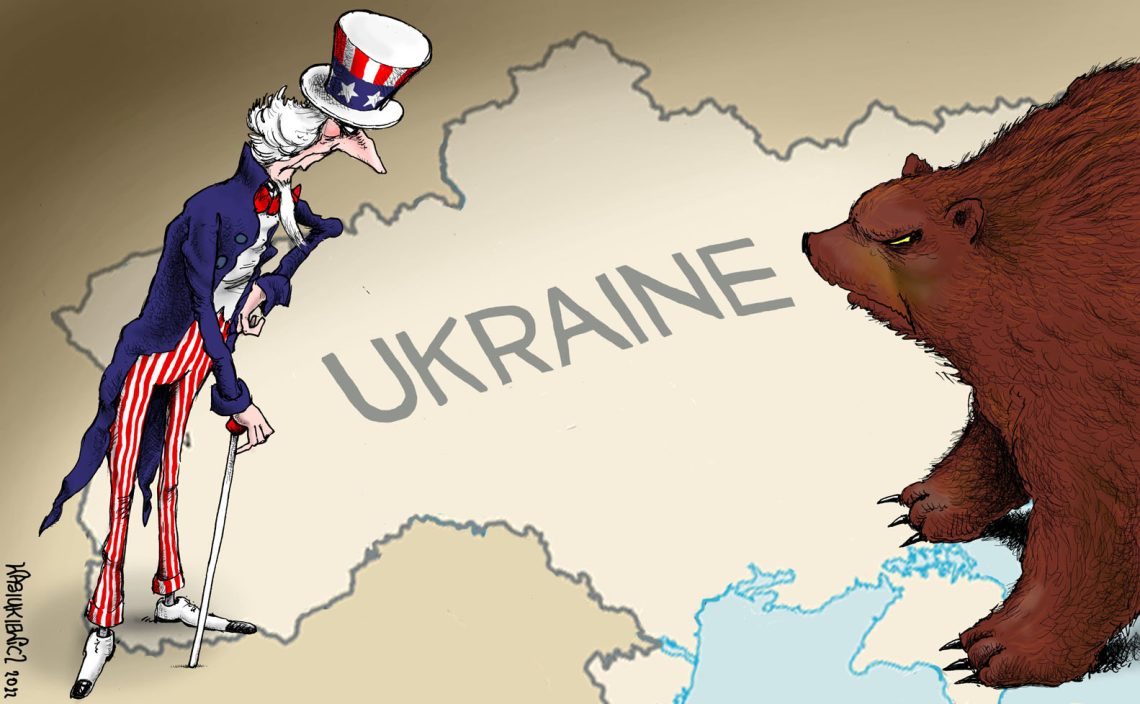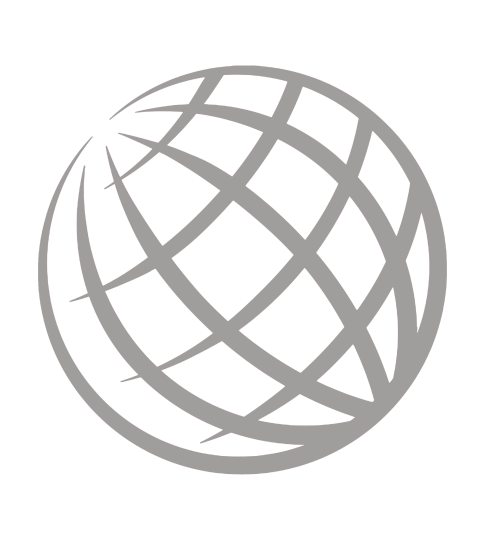The road to war between Russia and Ukraine
GIS and its founder, Prince Michael of Liechtenstein, have been warning for years about the possibility for conflict in Ukraine. World leaders refused to heed the signs.

When Russia invaded Ukraine on February 24, some people were shocked. Many thought that Moscow, with its buildup of troops all across Ukraine’s border, had been bluffing. For those who had been paying close attention, however, like GIS Founder and Chairman Prince Michael of Liechtenstein, it came as little surprise. GIS readers, too, will have known that the geopolitical forces had been building toward violence for a long time.
Unfortunately, not enough policymakers in the U.S. and Europe heeded the warnings. And there were many. Below, we present a selection of comments and analyses by Prince Michael himself, who had been setting out the potential scenarios and advising leaders what should be done to avoid the worst.
Superpower ambitions
For example, as far back as 2014, Prince Michael pointed out that Russia’s goal was to reestablish a geopolitical successor to the Soviet Union. In March of that year, he wrote:
Russia’s President Vladimir Putin has made clear that he sees the demise of the Soviet Union in 1991 as the biggest tragedy in history. Now it appears he is using the Eurasian Union to reestablish a superpower, under Russian leadership, within the borders of the former Soviet Union. This explains the Kremlin’s current policies toward Ukraine, a country that wants to embrace the West and end its corrupt regime. The Kremlin is acting logically and predictably in this context.
There are large Russian-speaking populations in Ukraine that need “protecting.” Russia believes its moves are even more justified because Ukraine constitutes Russia’s southwestern flank and provides Russian access to the Black Sea and the Mediterranean. The pretext – historically incorrect – is that Ukraine was always Russian and therefore Russia’s imperialism is defensible. Many from the West accept these hypotheses. This line of thinking is easy and means confrontation would be unnecessary. …
Using the same logic, Russia would be entitled to destabilize and lay claim to the Baltic states. They were part of Imperial Russia for a long time until 1918, and then became part of the Soviet Union in 1939 thanks to the partnership of Adolf Hitler and Russian leader Joseph Stalin. They have significant Russian-speaking minorities, control Russian access to the Baltic Sea and land access to Russia’s exclave of Kaliningrad.
Russia has issued passports to Baltic nationals for some time. It has also launched cyberattacks against the Baltic states.
Russia values this geostrategic position and is fearful of losing Ukraine to Western influence.
Russia continues to deploy armed forces to Kaliningrad, situated on the Baltic Sea between Lithuania and Poland. It has about 1,500 troops with 20,000 to 30,000 tons of weaponry and ammunition in Transnistria, a thin strip east of the Dniester River on the western border of Ukraine.
Officially, Transnistria belongs to Moldova but does not recognize the Moldovan government. It is a smuggling paradise and supported by Russia for obvious reasons.
So what is the significance of these Russian “beachheads” to the West – and what will happen next?
In a comment published a month later, Prince Michael warned: “Ukraine and its new government [which had taken office on February 27, 2014] face enormous challenges and an almost impossible war-like situation with possible disintegration and a failing economy.” He continued:
The very real threat of rapid disintegration of the eastern parts of the country is one challenge. Russia values this geostrategic position and is fearful of losing Ukraine to Western influence. Crimea and its naval base are crucial to Russia’s plans. To lose the region would mean the end of Russian President Vladimir Putin’s vision of regaining superpower status and would reduce the Eurasian Union to a farce. … Direct military confrontation cannot be excluded. Russia is using the pretext of legitimacy to protect the Russian population and is starting with Crimea. The regions of Kharkiv, Donetsk and probably Odesa could follow.
Thank you, Mr. Putin
Close collaboration between NATO, the United States and Europe is crucial to the defense of the West. That was the message driven home by Estonian President Toomas Hendrik Ilves (2006-2016) on receiving the Atlantic Council Freedom Award, noted Prince Michael in a comment published in June 2014.
Mr. Ilves said the Ukraine crisis meant that NATO, the U.S. and especially Europe now realized that defense is crucial and close collaboration essential. In this context, he said, “Thank you, Mr. Putin.” This refrain – thanking President Putin for the wake-up call – was repeated by other speakers at the forum.
Prince Michael underlined that Russia must not be considered an adversary of the West, but as a trade partner that should not be contained. It is only the threat from the Kremlin and Russian nationalists to reintegrate the lands of the former Soviet Union in the form of a Eurasian Union – against the wishes of the populations concerned such as in Ukraine – which has to be resisted, he wrote.
Europe has maneuvered itself into a position where Ukraine will be let down.
In another comment from 2015, entitled “Europe lets down Ukraine” repeatedly warned against the same risks of a serious conflict:
Europe and Ukraine ‘succeeded’ in signing an association agreement in March 2014. The problem is that this is just a piece of paper. Europe is unable to support Ukraine financially and unwilling to support it militarily when it faces a desperate situation. Europe has maneuvered itself into a position where Ukraine will be let down because Europe lacked political foresight and displayed military weakness.
Ukraine now risks disaster and Europe will have to pay a huge political price sometime in the future. Russia will present the bill when it books its victory in the first stage of the new Cold War.
Shifting priorities in the West
In March 2016, Prince Michael pointed out that Ukraine’s fate depends on … Ukraine itself:
The West, unable to cope with the manifold crises it faces, now primarily sees the conflict in Ukraine as a local issue. … Russia occupied and annexed Crimea. A rebellion broke out in eastern Donbas. The U.S. response was to “support” Ukraine, though not militarily. Financial backing from the European Union was insufficient and conditional. Important and easy trust-building measures, such as granting visa-free entry to Ukrainians, still remain unimplemented.
The West’s support for Ukraine was limited to words, diplomacy and sanctions against Russia. Priorities have shifted to other issues, such as the refugee crisis in Europe.
Just after Volodymyr Zelenskiy’s victory in the presidential elections in 2019, Prince Michael again reminded GIS readers that, “Better relations with Russia would also help the Ukrainian economy, but this will be a big challenge, since the countries have several difficult unresolved conflicts.” He continued:
Accepting the status quo in Crimea and the Donbas region would be dangerous – doing so could encourage further interventions by Russia. Moreover, Moscow is unlikely to tolerate a stable Ukraine, which could become too closely associated with the EU – and worse NATO. Moscow will consider such a state of affairs a challenge to Russia’s security and make every effort to destabilize the situation.
As we can see – all of the signs that pointed to today’s violence were right in front of our faces. Leaders, unfortunately, refused to see them or take them for what they were. We can only hope that they have learned their lesson, if we want to prevent an even bigger disaster in the future.








